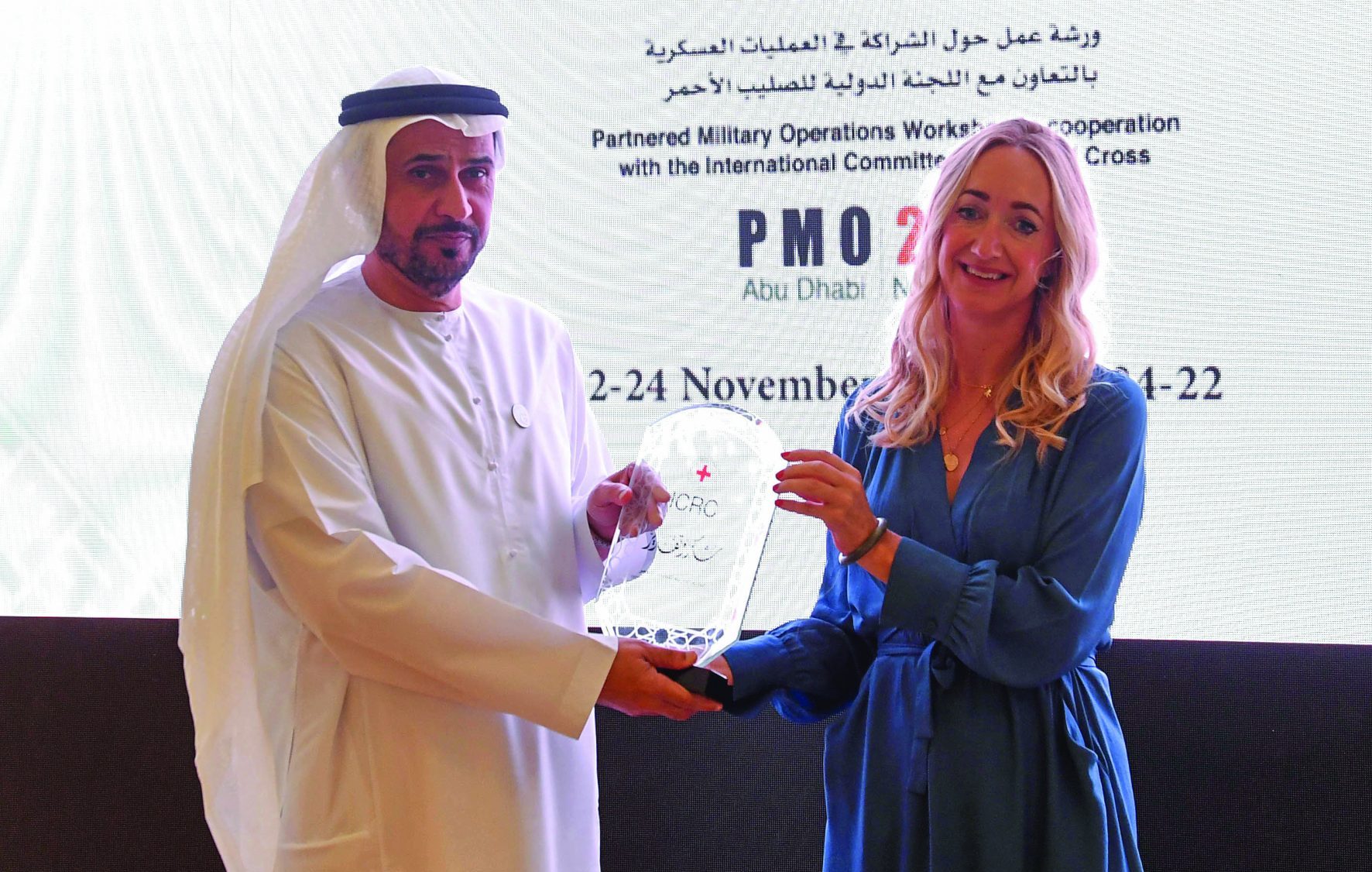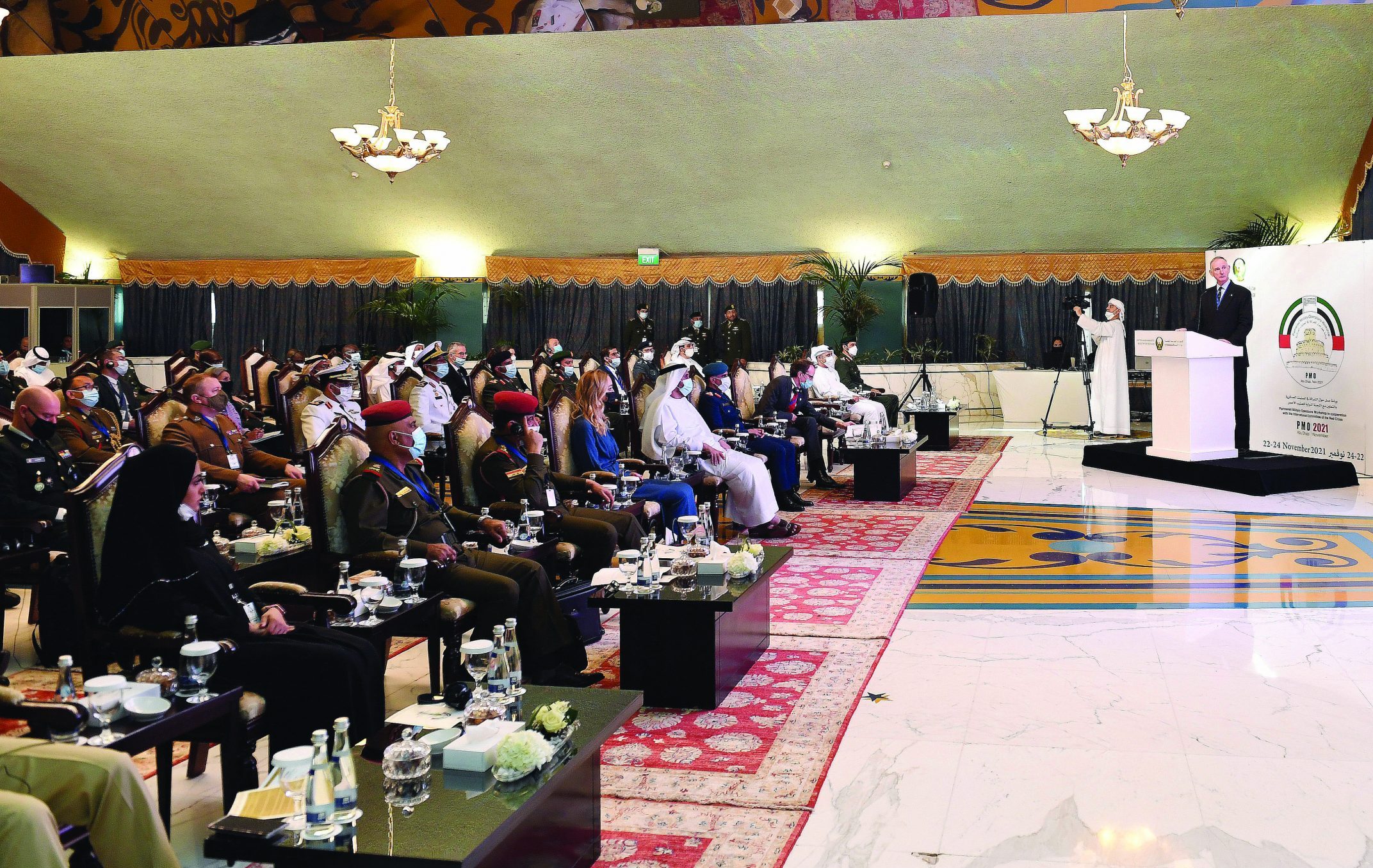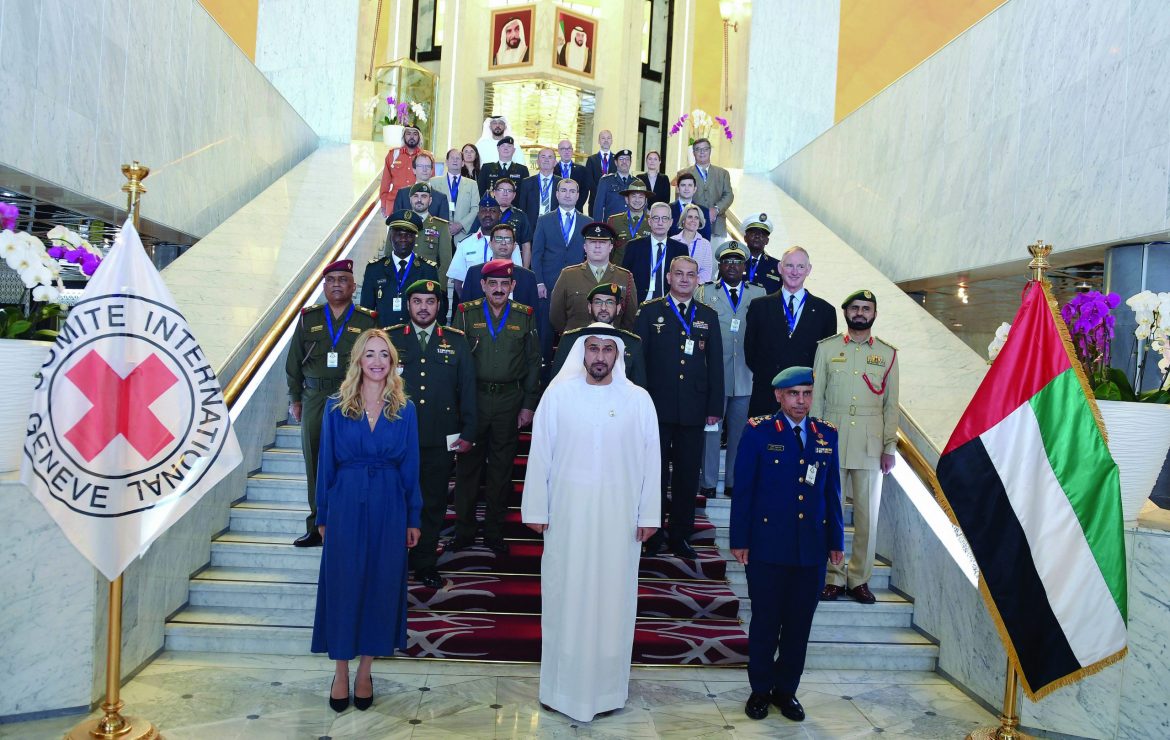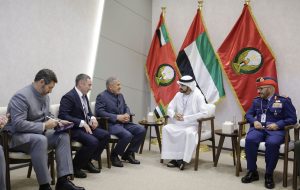On November 22, 2021, the Ministry of Defense organized in Abu Dhabi, in cooperation with the International Committee of the Red Cross, a workshop on partnership in military operations, with the participation of more than 30 senior military officers from 24 countries.

Workshop objectives
The workshop aims to exchange experiences and knowledge between military officers, humanitarian workers and academic experts worldwide, on practices aimed at enhancing the protection of civilians and civilian VIPs, and restricting the means and methods of combat in military operations during armed conflicts.
This event which comes three years after a workshop for senior officers on International Rules Governing Military Operations (SWIRMO), for the first time in the region, was held in the capital, Abu Dhabi, in cooperation between the Ministry of Defense and the International Committee of the Red Cross.
The workshop discussed topics such as the application of international humanitarian law in military operations and the mission of the International Committee of the Red Cross, its importance and its role in armed conflicts.
The Ministry of Defense indicated that the Partnership Workshop in Joint Military Operations provides participants with the necessary tools and skills to identify the lessons learned, in addition to the opportunities and challenges resulting from strengthening the partnership in the operational aspect of international humanitarian law.
Brigadier General Salem Jumaa Rashid Al Kaabi, Head of the Executive Department of Military Judiciary at the Ministry of Defense, said, “The UAE’s humanitarian approach was founded by the wise man of humanity, the late Sheikh Zayed bin Sultan Al Nahyan, may God rest his soul, the founder of the country since its inception to become a humanitarian school. The course of which is completed by His Highness Sheikh Khalifa bin Zayed Al Nahyan, President of the UAE, “may God protect him”, who has set the valuable frameworks from which humanitarian ideas stemmed, and which are based on the principles of protecting civilians, protecting the weak, providing relief to the afflicted, and extending a helping hand and assistance to everyone in need without discrimination regardless of their Religion, race, gender, color or political affiliation in armed conflicts.
He referred to the special importance of the United Arab Emirates to international humanitarian law and its keenness to join most international conventions that regulate issues of international humanitarian law, and all of this comes within the framework of the UAE’s support for the definition and dissemination of international humanitarian law, expressing his appreciation for the great role played by the International Committee of The Red Cross, which has taken upon itself the task of disseminating and applying the provisions of international humanitarian law.

Thank you Emirates
In turn, Claire Dalton, head of the International Committee of the Red Cross delegation in the country, thanked the UAE Ministry of Defense for hosting this important event, which is part of their strategic relationship with the UAE, and is in line with the common ambition of regional dialogue on important humanitarian issues and topics of international humanitarian law. . It is worth noting that the ICRC launched a global initiative on support relationships in armed conflicts, where it works with military officers and other actors to identify practical measures to enhance the protection of civilians, as the ICRC works with a number of actors at the international level to understand policies and practices and the operational challenges involved in strengthening relationships, as these actors can take advantage of their influence over one another to promote compliance and respect for international humanitarian law.
Workshop conclusion
The workshop concluded on November 24, 2021, where participants from the Ministry of Defense, the International Committee of the Red Cross, senior military officers from more than 24 countries, as well as academics and international experts gathered to discuss issues around partnership in military operations (PMO) and the protection of civilians and hors de combat in the Armed conflicts and the application of the provisions of international humanitarian law (IHL).
Brigadier General Salem Jumaa Rashid Al Kaabi, Head of the Executive Department of Military Judiciary at the Ministry of Defense, said: “The UAE is determined to continue to follow a proactive approach in working to mitigate the effects of disasters and crises on the afflicted, and to reach solutions that protect rights, prevent bloodshed and limit the attrition of material and human resources, and this is what was included in the principles of the fiftieth document proclaimed by His Highness Sheikh Khalifa bin Zayed Al Nahyan, President of the UAE and Supreme Commander of the Armed Forces, “may God protect him”, as values and principles that embody the established policy of the United Arab Emirates in helping and supporting peoples and helping the desperate and distressed in a homeland whose title is humanity.”
He added, “We are certain that the discussions and lessons learned from the workshop will continue to guide us in the coming years, and we will work to commit to implementing the highest values of providing humanitarian aid, and we will continue to work with regional partners and global friends to establish peace and stability at the regional and international levels.”
Claire Dalton, head of the ICRC delegation in the UAE, said: “We are grateful for organizing the Partnership in Military Operations workshop in cooperation with the Ministry of Defense. Parties to armed conflicts rarely fight alone today, and there are so many government actors, multinational and non-governmental organizations involved directly and indirectly in contemporary armed conflicts. Through this workshop, we discussed the relationships between these actors in many forms and the support that the parties provide to each other. We also discussed the support relationships between armed actors and how they also provide opportunities to enhance the protection of civilians and others not fighting. The application of international humanitarian law in military operations was the focus of the workshop, where information related to the ICRC’s mission, its importance and role was discussed.
The workshop provided an opportunity for military and academic experts to focus on procedures and measures to enhance the protection of civilians during military operations.













